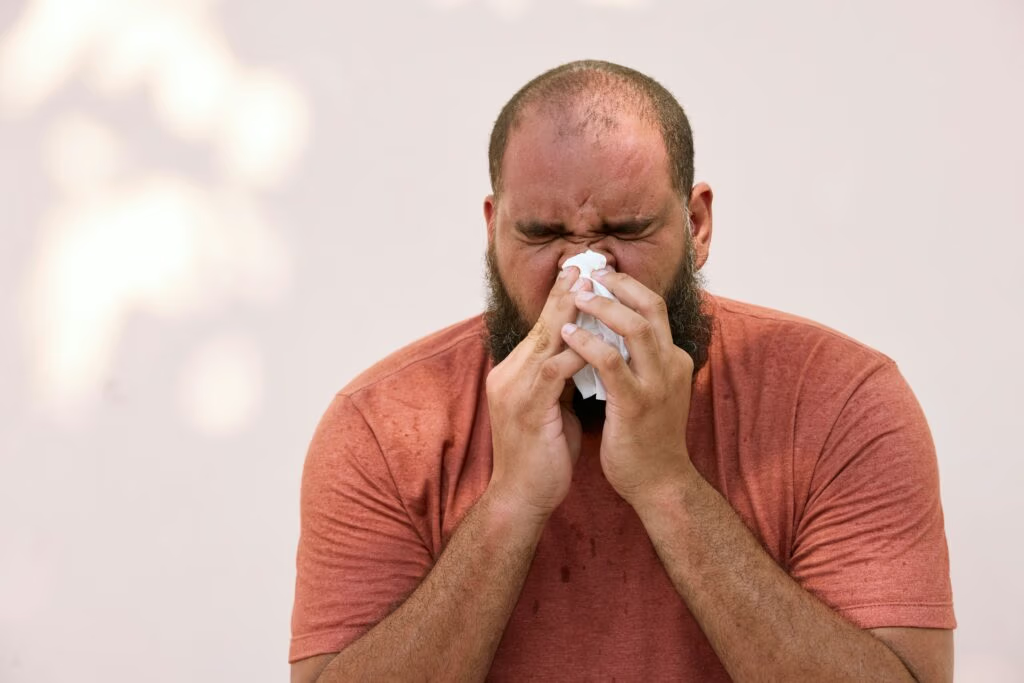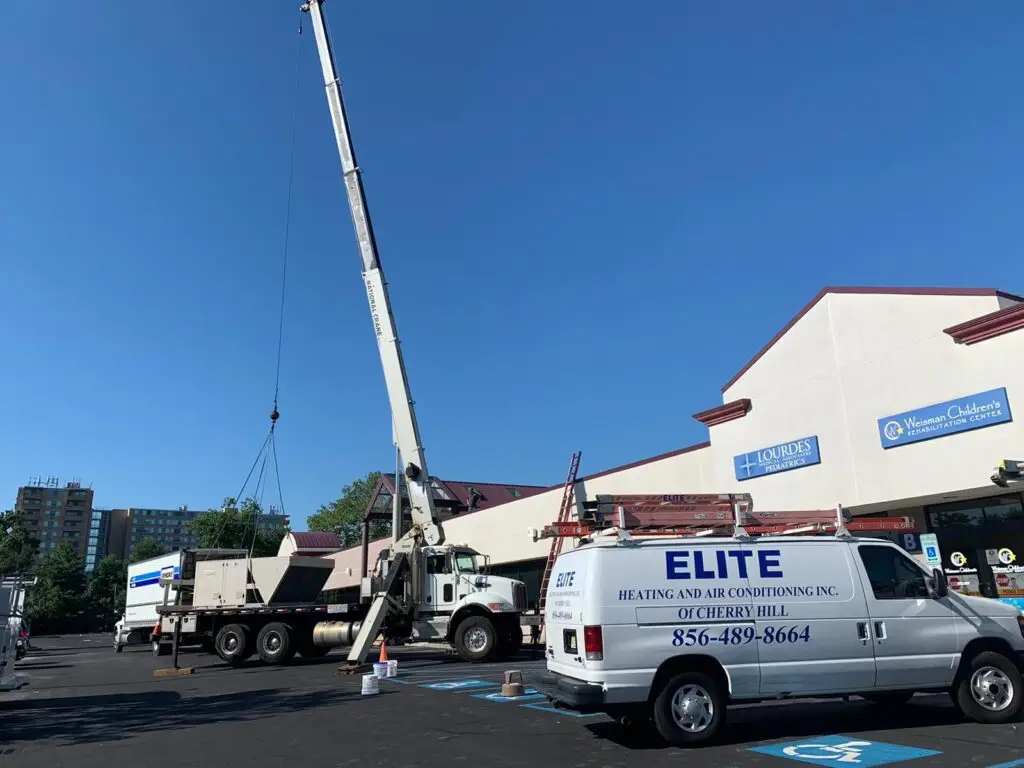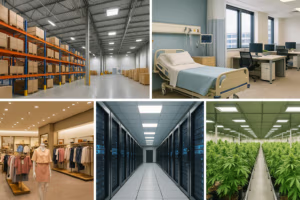Beyond Temperature: How HVAC Systems Enhance Indoor Air Quality in Commercial Buildings
HVAC and IAQ
When building owners and property managers think about HVAC systems, their minds often jump to climate control, utility bills, or system lifespan. Yet, behind the scenes, HVAC systems perform a crucial secondary role: they quietly, continuously influence indoor air quality (IAQ). While Elite Heating and Air Conditioning doesn’t offer standalone air quality services, our HVAC solutions are instrumental in shaping a building’s air quality — often more than many realize.
In the post-pandemic era, indoor air quality is no longer a fringe concern; it’s a priority. According to the U.S. Environmental Protection Agency (EPA), Americans spend about 90% of their time indoors, and indoor air can be two to five times more polluted than outdoor air. In commercial buildings with high occupant density and recirculated air, the stakes are even higher. This is where modern, well-maintained HVAC systems come in.
The Invisible Workhorse: HVAC and Ventilation
Ventilation is the first and most fundamental way HVAC systems contribute to air quality. By bringing in outdoor air and expelling stale indoor air, HVAC systems dilute indoor contaminants like carbon dioxide (CO2), volatile organic compounds (VOCs), and airborne particles. ASHRAE Standard 62.1, which governs ventilation for acceptable indoor air quality, sets baseline requirements that Elite designs and maintains systems to meet or exceed.
Buildings with inadequate ventilation often suffer from “sick building syndrome,” where occupants report headaches, fatigue, or respiratory issues. Studies have shown that improving ventilation can significantly enhance cognitive function and reduce absenteeism. In one notable Harvard study, doubling the ventilation rate improved cognitive scores by over 100%. These aren’t abstract benefits — they translate directly into tenant satisfaction and productivity.
Filtration: The Unsung Hero
Another way HVAC systems support air quality is through filtration. While Elite doesn’t install standalone air purification units, our HVAC systems can incorporate high-efficiency filters to capture a significant portion of indoor pollutants. The minimum recommendation for commercial spaces is a MERV 8 filter, but many of our clients opt for MERV 13 filters or higher, especially in high-traffic or health-sensitive environments.
According to research published by the National Air Filtration Association, a MERV 13 filter can remove up to 90% of airborne particles in the 1.0-3.0 micron range — including dust, pollen, mold spores, and some bacteria. These filters work within the existing HVAC infrastructure and don’t require separate maintenance schedules, making them a practical solution for property managers looking to improve air quality without adding operational complexity.

Humidity Control and Airborne Contaminants
Maintaining proper indoor humidity is another crucial function of HVAC systems. ASHRAE recommends keeping indoor relative humidity between 40% and 60%. Elite’s HVAC solutions include dehumidification and humidification components to ensure this balance is maintained year-round.
Why does this matter? Because viruses and bacteria thrive in overly dry or overly humid environments. A 2020 study in the journal Annual Review of Virology found that virus transmission is minimized when humidity stays within the recommended range. High humidity also encourages mold growth, which can compromise both air quality and building integrity. HVAC systems that effectively regulate moisture levels help mitigate these risks.
Maintenance: The Overlooked Factor in Air Quality
Even the most advanced HVAC system can contribute to poor IAQ if it’s not properly maintained. Dirty coils, clogged filters, and microbial buildup in ducts can reintroduce contaminants into the indoor environment. Regular maintenance — like what Elite provides through our preventative service agreements — ensures HVAC systems continue operating cleanly and efficiently.
The National Air Duct Cleaners Association (NADCA) estimates that HVAC systems accumulate 40 pounds of dust annually in a typical six-room building. In commercial facilities, that number is often much higher. Dust and debris buildup not only reduce system efficiency but also become a reservoir for allergens and pollutants. Routine inspections, filter changes, and duct cleaning are essential for preserving air quality

Data-Driven IAQ Gains with Smart HVAC Controls
Smart building technologies are amplifying the HVAC system’s role in IAQ. Sensors can now monitor CO2 levels, humidity, temperature, and particulate matter in real time, enabling HVAC systems to adjust ventilation rates automatically. Elite integrates these smart controls in many of our commercial projects, helping clients stay ahead of air quality issues before they escalate.
A study by the Lawrence Berkeley National Laboratory showed that smart ventilation strategies can reduce energy costs by 18% while maintaining or improving air quality. For building owners, this means fewer tenant complaints, better energy efficiency, and potentially higher occupancy rates.
Tenant Expectations and Marketability
Air quality is no longer just an operational issue; it’s a marketable building feature. As tenants become more health-conscious, they’re asking tougher questions about HVAC and ventilation. According to a 2023 CBRE tenant survey, 74% of commercial tenants consider air quality a top-five factor when evaluating space.
Elite clients have shared that showcasing their building’s HVAC specs — from filtration levels to ventilation rates — has become a selling point. In competitive leasing markets, buildings with proven IAQ management strategies are outperforming those that treat it as an afterthought.
Elite's Role in Healthier Indoor Environments
While we don’t offer standalone air purification services, Elite Heating and Air Conditioning plays a direct and measurable role in indoor air quality. Through expert design, high-efficiency components, and meticulous maintenance, we help commercial buildings meet modern IAQ expectations.
Whether you’re managing a multi-tenant office building, a healthcare facility, or a retail space, your HVAC system is doing more than just keeping people comfortable — it’s helping keep them healthy. And that’s not just good engineering; it’s good business.
Air is invisible, but vitally important
Indoor air quality may be invisible, but its impact is anything but. As the evidence continues to mount, it’s clear that HVAC systems are central to creating safer, more comfortable, and more productive indoor environments. At Elite Heating and Air Conditioning, we’re proud to help our clients lead the way in delivering cleaner air through smarter HVAC.
If you’re ready to learn how your HVAC system could be contributing more to your building’s air quality, let’s talk.

- ASHRAE ventilation standards, CO2 sensors in HVAC, commercial air conditioning, commercial hvac, Commercial HVAC maintenance, commercial HVAC systems, commercial HVAC upgrades, Dehumidification in HVAC, energy-efficient ventilation, Humidity control HVAC, HVAC air purification, HVAC filtration systems, HVAC indoor air quality, HVAC system design, improve air quality, Improve indoor air quality HVAC, indoor air quality, Indoor air quality in commercial buildings, MERV 13 filters, Smart building air quality, smart HVAC systems, South Jersey


